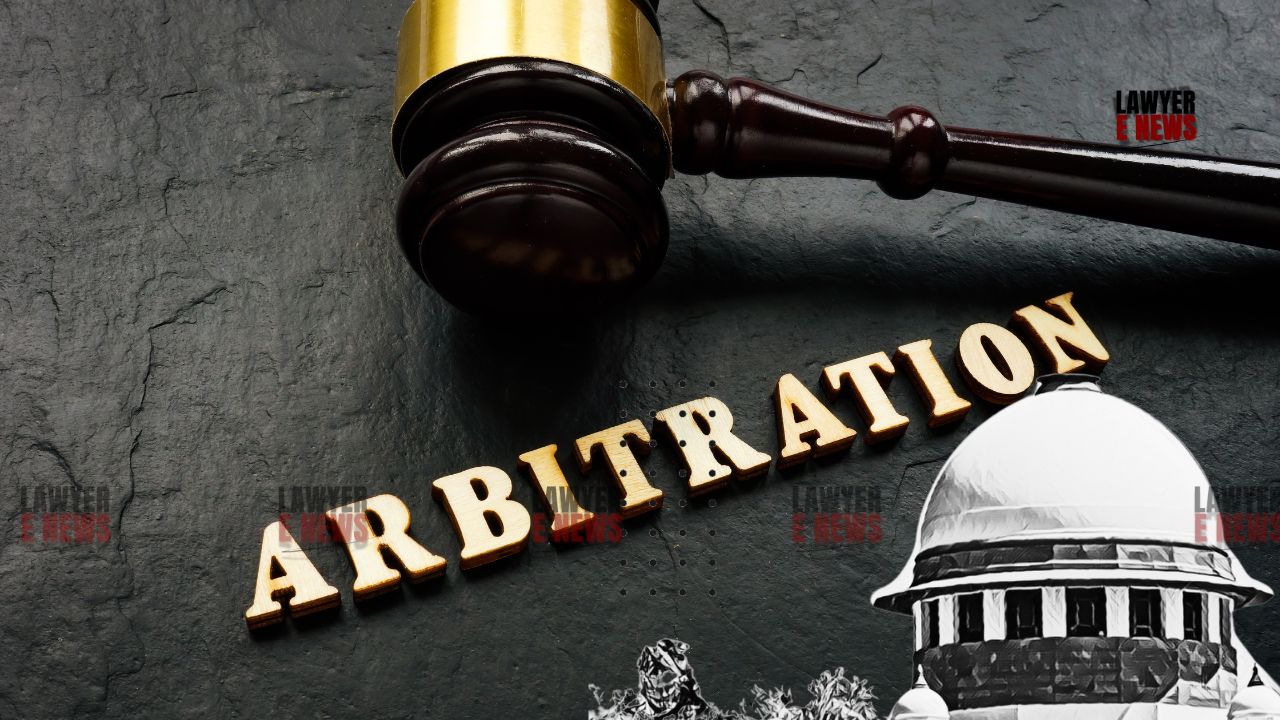-
by Admin
15 February 2026 5:35 AM



The Supreme Court of India, in a judgment delivered on August 30, 2024, has set aside a decision by the High Court of Madhya Pradesh, which had annulled an arbitration award solely on jurisdictional grounds. The Supreme Court invoked its extraordinary powers under Article 142 of the Constitution to restore the appeal and directed the High Court to reconsider the matter on its merits, emphasizing that justice should not be denied based on procedural technicalities.
The appellant, M/s. Modern Builders, had entered into a contract with the State of Madhya Pradesh for the construction of a minor bridge. However, the contract was rescinded by the State in 2001, leading the appellant to seek arbitration as per the contract's arbitration clause. Initially, the appellant approached the Madhya Pradesh Arbitration Tribunal under the Madhya Pradesh Madhyastham Adhikaran Adhiniyam, 1983. The Tribunal, however, ruled that the provisions of the Arbitration and Conciliation Act, 1996 would apply, given the presence of an arbitration clause. Subsequently, the High Court of Madhya Pradesh appointed an arbitrator, who awarded the appellant a sum of Rs. 6,52,235 in 2014.
Dissatisfied with the award, the respondents challenged it under Section 34 of the Arbitration Act, but their petition was dismissed. They then appealed to the High Court under Section 37, arguing that the Madhya Pradesh Arbitration Act of 1983 should have been applied. The High Court agreed and set aside the award, prompting the appellant to approach the Supreme Court.
The Supreme Court observed that the respondents had not raised any jurisdictional objections during the appointment of the arbitrator or during the initial proceedings. The Court noted that it would be unjust to annul the award based solely on the applicability of the 1983 Act, especially since the appellant had initially sought recourse under that very Act before being directed otherwise by the Arbitration Tribunal.
The Court referred to its earlier decision in Madhya Pradesh Rural Road Development Authority & Anr. v. L. G. Chaudhary Engineers and Contractors (2018), which discussed the applicability of state arbitration laws despite the presence of arbitration clauses. However, the Court highlighted that objections to jurisdiction must be raised at the appropriate stage and not post-award.
In its judgment, the Court stated, "Even assuming that the observations in paragraph 17 of the decision in the case of Madhya Pradesh Rural Road Development Authority are not applicable, this is a fit case to exercise jurisdiction under Article 142 of the Constitution of India to ensure that complete justice is done."
The Supreme Court's decision to reinstate the arbitration appeal and direct the High Court to consider the case on its merits, without being constrained by jurisdictional technicalities, underscores the judiciary's commitment to delivering substantive justice. The case will now proceed in the High Court, with all issues open for reconsideration, except for the question of which arbitration law should apply. This ruling has significant implications for future arbitration cases, particularly concerning the timing and raising of jurisdictional objections.
Date of Decision: August 30, 2024.
M/s. Modern Builders vs. State of Madhya Pradesh & Anr.
